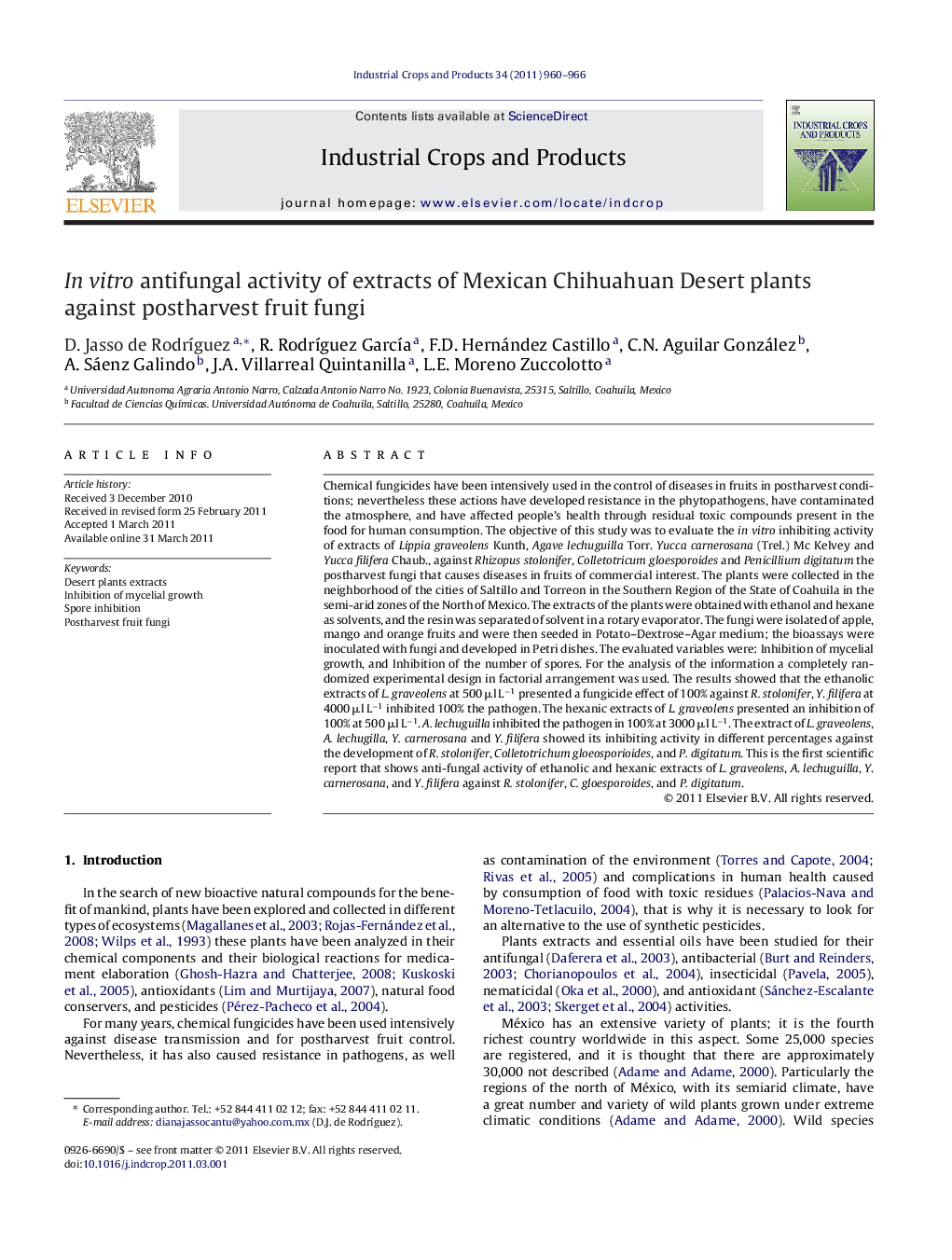| Article ID | Journal | Published Year | Pages | File Type |
|---|---|---|---|---|
| 4514548 | Industrial Crops and Products | 2011 | 7 Pages |
Chemical fungicides have been intensively used in the control of diseases in fruits in postharvest conditions; nevertheless these actions have developed resistance in the phytopathogens, have contaminated the atmosphere, and have affected people's health through residual toxic compounds present in the food for human consumption. The objective of this study was to evaluate the in vitro inhibiting activity of extracts of Lippia graveolens Kunth, Agave lechuguilla Torr. Yucca carnerosana (Trel.) Mc Kelvey and Yucca filifera Chaub., against Rhizopus stolonifer, Colletotricum gloesporoides and Penicillium digitatum the postharvest fungi that causes diseases in fruits of commercial interest. The plants were collected in the neighborhood of the cities of Saltillo and Torreon in the Southern Region of the State of Coahuila in the semi-arid zones of the North of Mexico. The extracts of the plants were obtained with ethanol and hexane as solvents, and the resin was separated of solvent in a rotary evaporator. The fungi were isolated of apple, mango and orange fruits and were then seeded in Potato–Dextrose–Agar medium; the bioassays were inoculated with fungi and developed in Petri dishes. The evaluated variables were: Inhibition of mycelial growth, and Inhibition of the number of spores. For the analysis of the information a completely randomized experimental design in factorial arrangement was used. The results showed that the ethanolic extracts of L. graveolens at 500 μl L−1 presented a fungicide effect of 100% against R. stolonifer, Y. filifera at 4000 μl L−1 inhibited 100% the pathogen. The hexanic extracts of L. graveolens presented an inhibition of 100% at 500 μl L−1. A. lechuguilla inhibited the pathogen in 100% at 3000 μl L−1. The extract of L. graveolens, A. lechugilla, Y. carnerosana and Y. filifera showed its inhibiting activity in different percentages against the development of R. stolonifer, Colletotrichum gloeosporioides, and P. digitatum. This is the first scientific report that shows anti-fungal activity of ethanolic and hexanic extracts of L. graveolens, A. lechuguilla, Y. carnerosana, and Y. filifera against R. stolonifer, C. gloesporoides, and P. digitatum.
► The study considers the extracts application of some endemics mexican plants. ► The Results can be applied for biofungicide production. ► The extracts of the species must be evaluated for field experiments, the results obtained of this research are the first report of mexican semiarid plants extracts against the three fungi studied.
